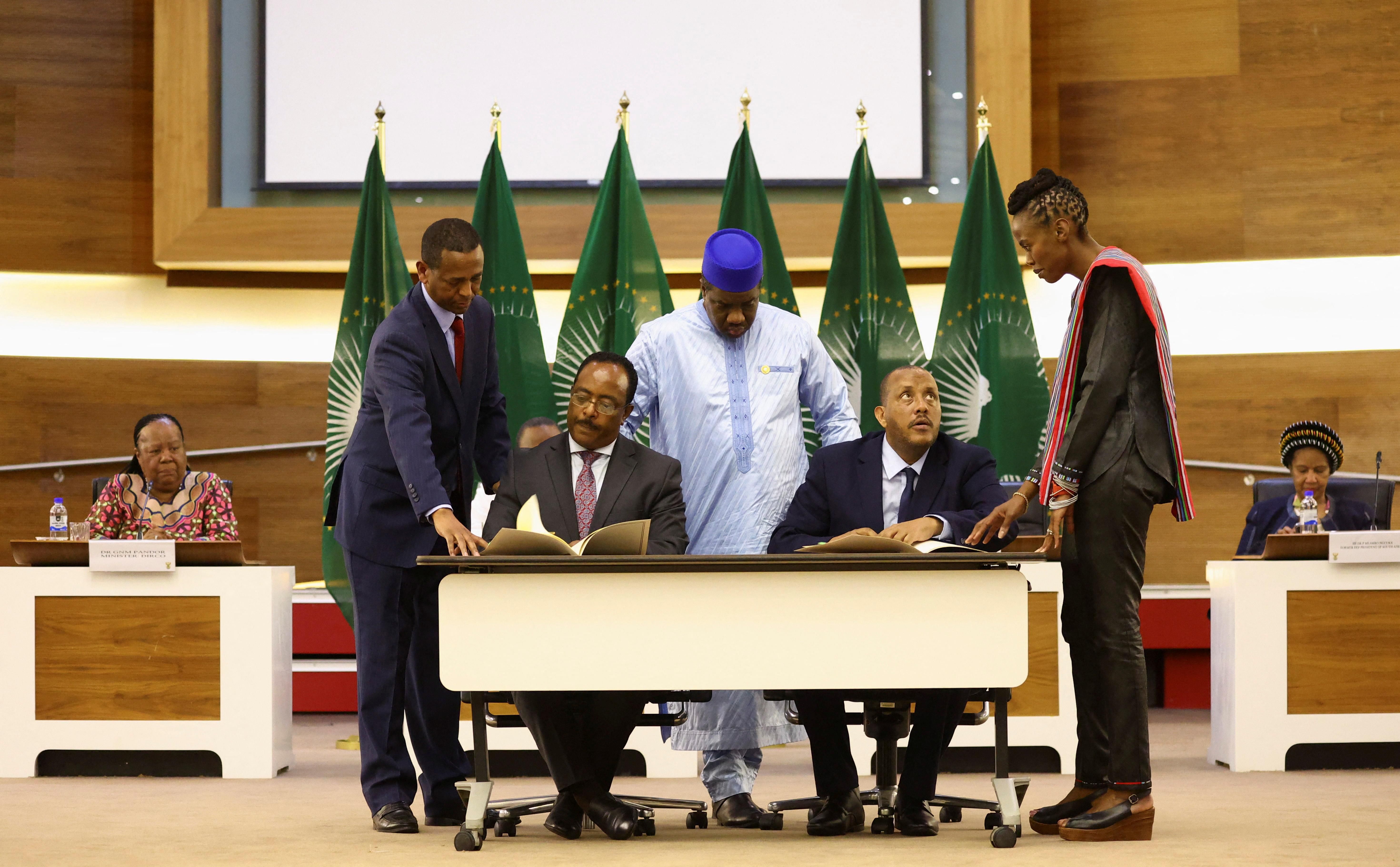Peace at last in Ethiopia?
The government of Ethiopia and rebels from the Tigray region agreed on Wednesday to “permanently” end their civil war. The conflict, which began in late 2020 as Tigrayan forces sought more autonomy from the central government, spiraled into a brutal war that displaced millions, drew in forces from neighboring Eritrea, brought parts of the country to the brink of famine, and led to possible war crimes on both sides. The precise terms of the peace agreement, reached during African Union-brokered peace talks in South Africa, aren’t yet clear, but former Nigerian President Olusegun Obasanjo, who oversaw the negotiations, said the sides had pledged to put down their weapons, restore “law and order” and open full access to humanitarian aid. One big wildcard? Eritrea, which was not involved in the talks but has its own security interests and territorial claims along its border with Tigray.
Rare good news from Ukraine
Russia has (again) reversed itself on a deal allowing Ukrainian food exports to cross the Black Sea toward international markets, this time by reaffirming its support for safe passage. This is great news for developing countries, particularly in Africa, that badly need affordable food supplies at a time of economic hardship. Under the rules of the July deal brokered by the UN and Turkey, Ukrainian grain and sunflower oil may leave Ukrainian ports and proceed through an agreed-upon maritime corridor. The ships are then inspected in Turkey to ensure they’re not carrying weapons. After a drone attack on Russian ships in the Black Sea, Russia retaliated on Saturday by announcing it would no longer support the deal. But, apparently to the Kremlin’s surprise, the ships continued their journey, essentially daring Russia to sink ships carrying food. Its bluff called, Moscow announced on Wednesday that it would continue to support the deal after all. The original agreement expires on November 19, and many have wondered whether Russia would renew it. This latest reversal suggests Moscow now understands it has little to gain by opposing it.
North Korean missile first
Supreme leader Kim Jong Un hates being ignored. To demand attention, North Korea let off its largest-ever, one-day barrage of missiles on Wednesday, firing 23 ballistics into the sea. One landed a mere 40 miles from the South Korean shore, the closest coastal near-miss since the peninsula was divided in 1945. The move came just as the US and South Korea began large-scale joint military drills, which drive Pyongyang up the wall and prompted it to threaten “powerful follow-up measures.” In response, South Korea flipped on air raid sirens, canceled commercial flights to Japan, and fired a volley of its own missiles northward into the sea. North Korea has conducted a record number of ballistic missiles this year in defiance of international sanctions. Talks between the US and North Korea on Pyongyang’s nuclear weapons, meanwhile, remain in a deep freeze, and Wednesday’s barrage follows reports that Kim may be preparing his first nuclear weapon test since 2017.
Update: On Thursday, North Korea launched a suspected ICBM, which flew 472 miles before landing in the sea. The test likely failed but prompted a rare emergency alert in northern Japan.
Chinese manufacturing in chaos
China’s manufacturing sector is in a tailspin this week after several large production lines were shut down due to the country’s restrictive zero-COVID policy. On Wednesday, mass lockdowns in the industrial city of Zhengzhou, the capital of Henan province, caused several electronic factories to
shutter, including Foxconn, one of the manufacturing hubs for iPhones that employs around 200,000 workers. Shortly after, Nio, an electric vehicle manufacturer,
announced it was stopping operations at two factories in eastern Anhui province due to supply-chain kinks that have left it short of crucial parts. Some of Nio’s vehicles are bound for European markets that are already facing sky-high prices for cars and other commodities. While many predicted that President
Xi Jinping would relax the country’s zero-COVID policy after October’s Chinese Communist Party’s National Congress, so far he’s doubled down on it. Crucially, the timing of this, just weeks before the holiday season, could not be worse for Big Tech or consumers.
